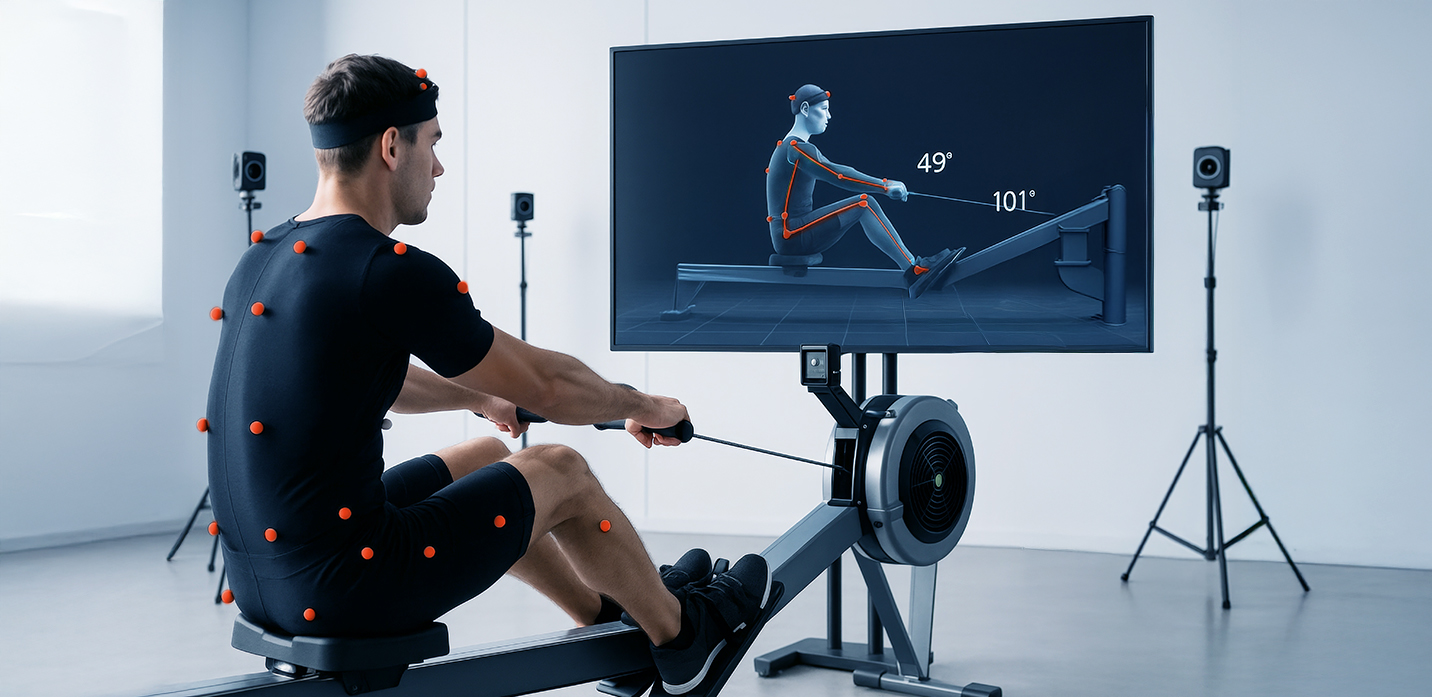Technology and Innovation: Rewriting the Rules of Sport
Sport is being reshaped by technology, from AI-driven performance and VR training to smart stadiums and blockchain ticketing, creating a new ecosystem where innovation meets sustainability, fan engagement and fairness. From grassroots to elite levels, data and digital tools are transforming how athletes train, fans experience events and organisations operate. Our VP and Head of Sport, Lauren Best, explores how technology and innovation are rewriting the rules of sport.
From Grassroots to Global: The New Sporting Ecosystem
Once, sport meant a ball, a field and a crowd. Today, it’s a multi-billion-dollar global ecosystem powered by technology: AI-driven logistics, electrification, real-time data streams, immersive fan platforms and partnerships that blur the line between sport and industry. From pit-lane telemetry streamed to F1 engineers, to NFT tickets proving ownership of iconic sporting moments, the most transformative innovations are happening at the intersections: logistics meets sustainability, energy meets performance, and real-time data meets fan experience.
Over the past decade, sport has undergone a quiet revolution. From grassroots five-a-side in Hackney Marshes to the Olympic Velodrome in Stratford, technology is reshaping how athletes train, how fans engage, how stadia deliver experiences and how governing bodies uphold fairness. Talent alone no longer determines outcomes; innovation now plays an equally decisive role from performance to experience.

The New Frontiers of Performance and Experience
Data-Driven Performance: Training by “gut feel” is over. Wearables, GPS trackers and biometric sensors generate vast datasets on everything from heart-rate variability to sprint acceleration curves. AI parses this to flag weaknesses, predict injury risk and optimise loads. At Manchester City’s Etihad Campus, GPS vests and AI analytics drive marginal gains. British Cycling’s famed “marginal gains” philosophy now runs on biomechanics labs and data science. For grassroots players, tools like Catapult’s affordable wearables are helping young talent avoid burnout and injury while maximising development.
Virtual and Augmented Training Environments: VR and AR have gone mainstream in elite preparation. A Harlequins fly-half can rehearse tactical decisions in a headset without bruises on a muddy pitch. Formula 1 drivers like Lando Norris train extensively on high-fidelity simulators at McLaren’s Woking HQ before ever hitting the track. For the FA, VR is now being trialled in referee training to simulate crowd pressure and improve decision-making consistency.
The Ethics of Enhancement: As innovation accelerates, ethical dilemmas multiply. If two sprinters train equally hard, but one has access to a £50,000 AI-driven programme, is that fair? Governing bodies like UK Anti-Doping and the FA’s Integrity Unit face new challenges around access, equity and enhancement boundaries. Debates around prosthetic running blades or concussion-monitoring headbands show how blurred the line between safety, fairness and advantage has become.
The Fan Experience Revolution: Fans are no longer passive spectators. 5G-enabled stadiums like Tottenham Hotspur Stadium deliver real-time stats, AR replays and food ordering straight to phones. Sky Sports’ AI-driven highlight reels curate clips seconds after the action. Blockchain ticketing pilots at Wimbledon and Twickenham aim to cut touting and give fans verified digital ownership. These aren’t gimmicks; they’re reshaping loyalty, engagement and commercial models.
Sustainability Through Innovation: The future of sport is green or it isn’t viable at all. The Premier League’s “Green Football Weekend” highlights rising awareness, but tech takes it further. Brentford FC’s Gtech Community Stadium is London’s first “sustainable stadium,” powered by renewable energy. Wimbledon has piloted AI-optimised waste sorting to reduce landfill. Formula E, headquartered in the UK, is a global testbed for electrification, with learnings spilling into consumer EV tech.

Building the Future: How to Innovate Authentically
Sport has always been about pushing human limits; technology provides new tools to extend them. The winners will be those who embrace innovation authentically, aligning partnerships with real outcomes that drive tangible benefits. These can be done through three (easy) steps:
Treat partners as co-builders, not just sponsors – Contracts should define shared KPIs such as emissions reduction, operational uptime or fan engagement. This approach is exemplified by partners like DHL, the official logistics partner for Formula E, which implements sustainable logistics practices aligned with both organisations’ sustainability goals. Similarly, bp is developing FIA-approved Advanced Sustainable Fuel for Audi’s Formula 1 entry in 2026, in accordance with the FIA F1 Technical Regulations. Both cases demonstrate strategic, mutually beneficial partnerships that drive measurable impact.
Pilot interoperable tech and measure relentlessly – NFT ticketing at Wimbledon, sustainable matchday energy pilots at Premier League clubs, or Formula E’s supply-chain experiments each provides data on cost, carbon and fan conversion. Measure, learn and scale.
Monetise utility, not speculation – The real money isn’t in NFTs, but in digital ownership that unlocks real experiences: priority seating, verified memorabilia or even EV charging tied to stadium attendance. Projects must either deepen loyalty or reduce structural costs to endure.

The Road Ahead: Balancing Innovation and Integrity
Sport has long been a laboratory for innovation, from Hawk-Eye at Wimbledon to VAR in the Premier League. Sport now sits at the crossroads of tech adoption and cultural tradition. The path forward is clear: start with one measurable challenge, choose a partner with real technical IP and build a pilot with hard go/no-go criteria. That’s how today’s flashy experiments become tomorrow’s industry standards. Because at its core, sport isn’t about the tech, it’s about fairness, drama and the unpredictable beauty of human endeavour. Innovation is only valuable if it enhances, rather than replaces what happens on and off the pitch.
To chat with the team to find out how Bright Partnerships can help you and your brand, contact us at Bright Partnerships.
Sources
Canvas8 (various articles)


